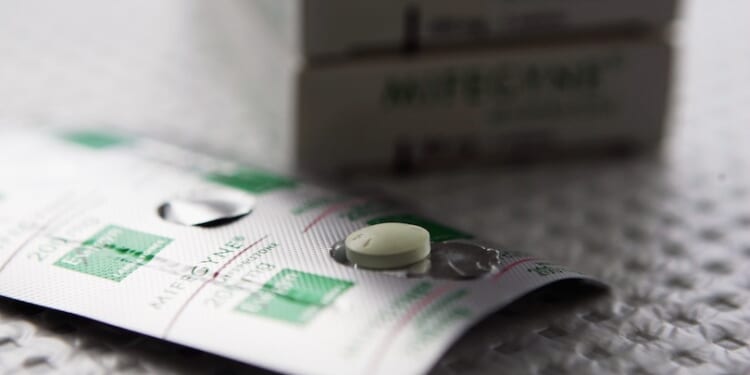(LifeSiteNews) — A new report sheds light on why complications from dangerous chemical abortion drugs are often left “underreported.”
The report from the National Right to Life Committee (NRLC) adds important context to recent studies showing that the complications are often unreported. Abortion drugs can never be considered safe because they kill an innocent preborn baby. But they also can be incredibly damaging for the women who take them as well.
The document details the “deliberate effort by abortion advocates and their media allies to make abortion pills seem safer than they really are.” The issue of abortion drug “safety” has come under further scrutiny since the Biden administration rolled back practically every limit on obtaining the drugs. The Trump administration has meanwhile promised a review of the data, with Secretary of Health and Human Services Robert F. Kennedy Jr. suggesting the Biden administration had “twisted” the numbers.
This new report adds information to why the Ethics and Public Policy Center (EPPC) found a complication rate of 11 percent for using the drugs and suggests the true rate is even much higher.
“10.93 percent of women experience sepsis, infection, hemorrhaging, or another serious adverse event within 45 days following a mifepristone abortion,” the EPPC found in a report. “The real-world rate of serious adverse events following mifepristone abortions is at least 22 times as high as the summary figure of ‘less than 0.5 percent’ in clinical trials reported on the drug label.”
This data alone is concerning, but there are likely even more complications. The NRLC points out that abortion pill pushers specifically tell women to hide their use when they go to the emergency room for complications.
“One reason the ER doctors may not enter any note about the chemical abortion on the chart is that they don’t know patients have taken abortion pills or that patients have been told by those who prescribed their abortion pills not to reveal this to the doctors,” the report notes. It quotes several prominent abortion drug pushers who give women this exact advice.
Aid Access, for example, stated on its website in 2020:
If you think you might have a complication you should go to a doctor immediately. You do not have to tell the medical staff that you tried to induce an abortion; you can tell them that you had a spontaneous miscarriage…. The symptoms of a miscarriage and an abortion with pills are exactly the same and the doctor will not be able to see or test for any evidence of an abortion, as long as the pills have completely dissolved.
The group’s founder, Rebecca Gomperts, said in 2024 that women should just say they had a miscarriage in order to receive treatment after an abortion complication.
Since abortion drugs currently account for about 63 percent of abortions in the United States, it is plausible that thousands, if not tens of thousands of women, are having some sort of complication, but it’s being reported by medical professionals as due to a miscarriage.
Lying to medical professionals, as the abortion advocates say women should do, harms everyone by tainting safety data, the NRLC notes. “Sudden and dramatic increases of complications among mifepristone patients coming in for treatment at the emergency room may be incorrectly attributed to pregnancy in general and may appear to indicate a disturbing and unexplained jump in miscarriage, rather than a direct outcome of growing mifepristone use.”
Abortions often miscoded as miscarriages, study finds
This concern is backed up by evidence in the report. The NRLC cites a Charlotte Lozier Institute study of 29,000 California women who had chemical abortions. The experts concluded “nearly 84% of those visits of chemical abortion patients were miscoded as complications related to ‘miscarriages’ rather than the previous abortion.”
“The complications are there, but they aren’t being reported,” the NRLC says.
There are other ways data is played with to feed into the narrative the abortion drugs are safe for women – a line the media parrots without any skepticism, the national pro-life group says.
For one, complications are considered “minor” even if most people would classify them differently. A 2015 report that purported to find the drugs have few “major complications” illustrates the problem.
Among the “minor complications,” as determined by the authors, are “uterine perforations” and “diagnosis of cervical injury requiring suture repair.”
Infections and hemorrhaging were also labeled as “minor” by this particular study.
Trials of the “safety” of the abortion drugs may also not count those women who had such painful adverse reactions that they drop out of the study in entirety, a problem called “survivorship bias.”
“Clearly a number of women do have problems,” the report concludes. “And it is important that we have accurate information and numbers on the women who do.”
“Assertions of mifepristone safety on the basis of flawed, slanted industry studies are not good enough,” the report concludes.

















